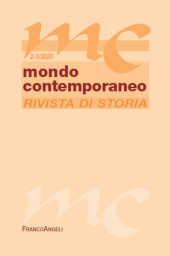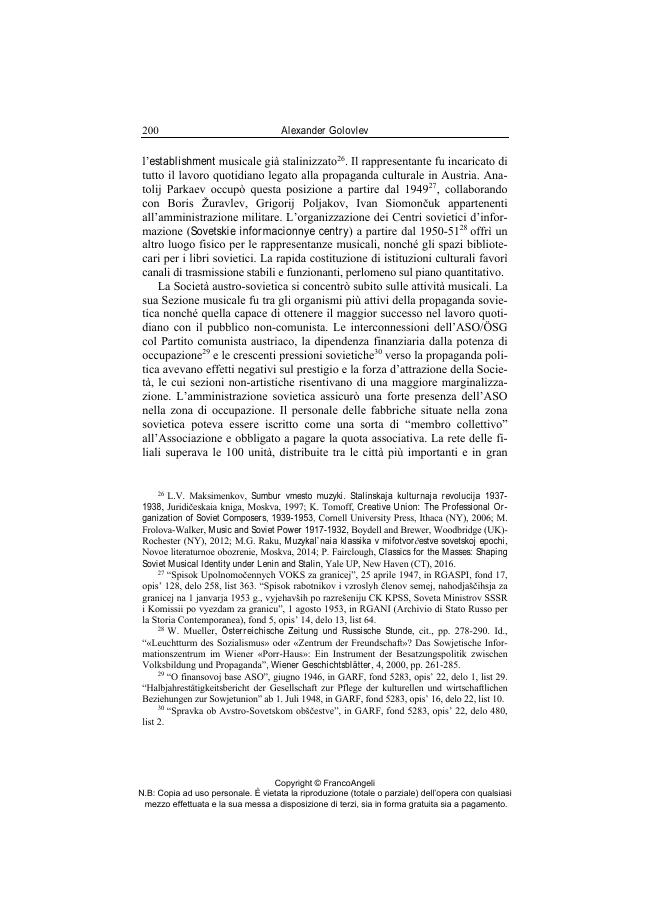Suoni e lettere della musica : intermedialità nei transferts culturali austro-sovietici (1945-1955)
193-206 p.
Alla liberazione di Vienna, la Società austro-sovietica rapidamente restaurata fu altrettanto veloce nello scoprire che la domanda di musica russa superava di gran lunga qualsiasi interesse per il comunismo sovietico. In una Vienna distrutta, gli spartiti erano un bene prezioso e le generose importazioni sovietiche furono influenti nel plasmare i primi repertori del dopoguerra. La ricezione austriaca differiva spesso dalle aspettative sovietiche, mostrando da un lato l'anticomunismo austriaco ma, allo stesso tempo, non ostacolando un riavvicinamento culturale a lungo termine tra austriaci e sovietici ("russi").
Contrariamente alle ipotesi sulla natura non verbale della musica, la narrativa non era meno importante del suono, poiché riguardava non solo la sfera emotiva, ma anche le implicazioni della musica sulle questioni della (inter / trans) nazionalità, dell'identità e alterità, i suoi canoni estetici socialmente accettati, le condizioni di produzione e consumo (percezione) e la posizione relativa del potere (savoir-pouvoir) di vari attori culturali. Imprimere il discorso/i culturale/i e l'habitus di un paese, il cui progetto di costruzione della nazione era incentrato sulla musica, ha permesso un improbabile, ma armonioso matrimonio tra due contesti politico-musicali che erano ideologicamente opposti, ma convergenti su idee comuni di capitale culturale e prestigio. [Testo dell'editore].
Upon Vienna's liberation, the quickly restored Austro-Soviet Society was equally quick to find out that the demand for Russian music far outweighed any interest in So-viet Communism. In a burnt-out Vienna, sheet music was a valuable commodity, and generous Soviet imports were influential in shaping early post-war repertoires. How-ever, Austrian interpretations often differed from Soviet expectations, showing Austri-ans' anti-communism and, at the same time, facilitating a long-term cultural rapprochement. Contrary to assumptions of music's non-verbal nature, the narrative was no less important than sound, since it addressed not only the emotional sphere, but also music's implications on the issues of (inter/trans-) nationality, identity and otherness, its socially accepted aesthetic canons, conditions of production and consumption (perception), and the relative power ("savoir-pouvoir") position of various cultural actors.
Imprinting on the cultural discourse(s) of a country whose nation-building project was centered on music provided for an unlikely, yet surprisingly harmonious interaction of two societies that were ideologically opposed, yet converged on common ideas about cultural capital and prestige. [Publisher's text].
-
Articles from the same issue (available individually)
-
Information
ISSN: 1972-4853
DISCIPLINES
KEYWORDS
- Diplomazia musicale, intermedialità, propaganda sovietica, Austria occupata, transfert culturali, diplomazia culturale
- Musical diplomacy, intermediality, Soviet propaganda, occupied Austria, cultural trans-ferts, cultural diplomacy



